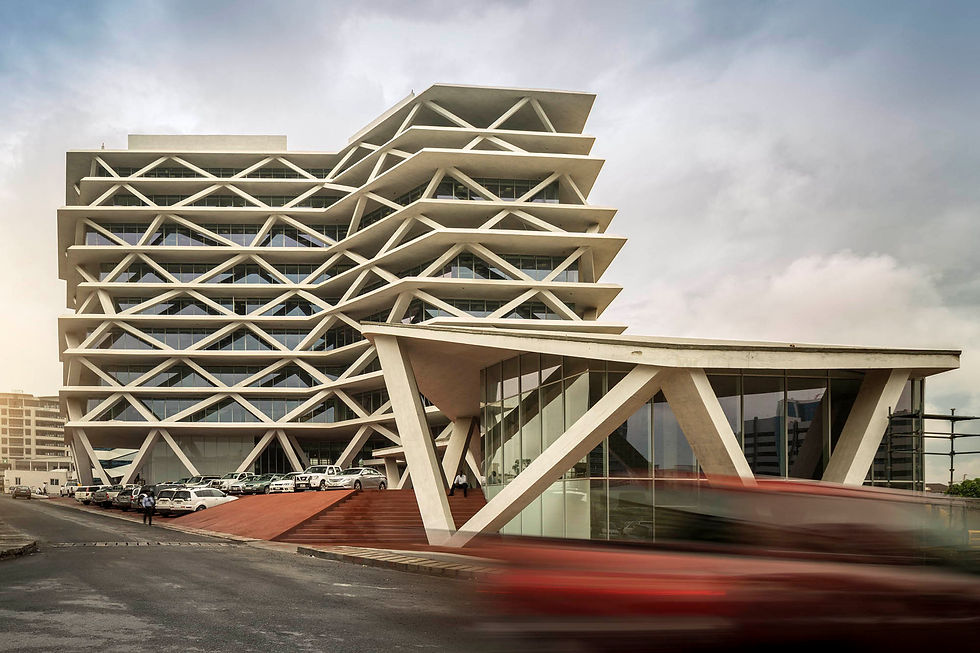Ghana, a country known for its rich culture and diverse landscapes, is now taking steps toward a more sustainable future by embracing eco-friendly construction practices. As the world recognises the importance of environmental conservation, Ghana's construction industry is making strides to ensure that the homes built today not only provide comfort and shelter but also contribute to the well-being of the planet. In this blog, we will delve into the significance of sustainable construction in Ghana and explore some of the innovative practices being adopted.
The Need for Sustainable Construction Of Homes in Ghana

Picture Credit: Getty Images
With the global climate crisis becoming more evident, the construction sector has a crucial role to play in reducing its environmental impact. In Ghana, rapid urbanization and population growth have led to increased demand for housing and infrastructure. However, this growth comes with challenges related to energy consumption, waste generation, and resource depletion. Sustainable construction aims to address these challenges by integrating eco-friendly technologies and practices into the building process.
Innovative Eco-Friendly Practices
1. Passive Design
One of the cornerstones of sustainable construction is passive design. By optimising the orientation, layout, and materials of a building, architects and builders can minimise the need for artificial heating and cooling. In Ghana's tropical climate, this means harnessing natural ventilation and shading to maintain comfortable indoor temperatures.
2. Use of Local Materials
Sustainable construction in Ghana often involves using locally sourced materials. This not only reduces the carbon footprint associated with transportation but also supports local economies. Earth materials, such as adobe and compressed earth blocks, are gaining popularity due to their thermal properties and minimal environmental impact.
3. Renewable Energy Integration
Incorporating renewable energy sources, such as solar panels, can significantly reduce a home's reliance on non-renewable energy. Ghana's abundant sunlight makes solar energy a particularly viable option, allowing homeowners to generate their electricity and even contribute excess power to the grid.
4. Rainwater Harvesting
Water scarcity is a concern in many parts of Ghana. Rainwater harvesting systems collect and store rainwater for various household uses, reducing reliance on groundwater and municipal water supplies. This practice not only conserves water but also helps mitigate flooding in urban areas.
5. Waste Reduction and Recycling
Sustainable construction extends beyond the building process to waste management. Incorporating recycling systems and reusing construction waste for other purposes can significantly decrease the amount of waste sent to landfills.
 |
One Airport Square, Accra |
|
Challenges and Opportunities
While the shift towards sustainable construction in Ghana is promising, it's not without its challenges. These include a lack of awareness among stakeholders, cost considerations, and the need for specialized skills in implementing eco-friendly technologies. However, these challenges also present opportunities for innovation, collaboration, and skill development within the construction industry.
A Greener Future
As Ghana works toward achieving its sustainable development goals, the construction industry plays a pivotal role in shaping the country's future. Building homes that prioritize environmental responsibility, energy efficiency, and the well-being of inhabitants is a step in the right direction. By embracing eco-friendly construction practices, Ghana can set an example for other nations striving to create a more sustainable built environment.
In conclusion, the concept of building sustainable homes in Ghana is not just a trend; it's a necessity for the preservation of the environment and the well-being of future generations. Through thoughtful design, innovative technology, and a commitment to reducing environmental impact, the construction industry in Ghana can pave the way for a greener and more prosperous future.

Comentários